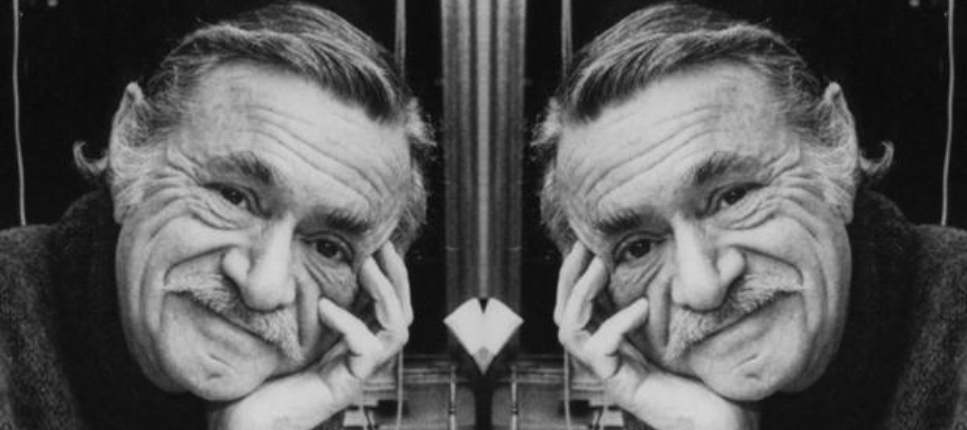Lit Hub Weekly: May 1–5, 2023
THE BEST OF THE LITERARY INTERNET

-
Helen Oyeyemi on the rebel vocabulary of Ágota Kristóf: “If the likes of Kristóf and her kin have anything to do with it, we shall never feel that we’ve finished learning to read.” | Lit Hub Criticism
Article continues after advertisement -
Herb Harris muses on the history of racial passing in America, and his own grandparents’ brief outings across the color line. | Lit Hub Memoir
-
James Crawford considers how literature has “explored, confronted, challenged, mocked, and unpicked” borders both real and imagined. | Lit Hub Criticism
-
Sarah diGregorio considers how the mythic origin story of Florence Nightingale perpetuates white supremacy in nursing. | Lit Hub History
-
Abraham Verghese’s The Covenant of Water, Nana Kwame Adjei-Brenyah’s Chain-Gang All-Stars, and Alexandra Auder’s Don’t Call Me Home all feature among the Best Reviewed Books of the Week. | Book Marks
Article continues after advertisement -
First they came for library books, now they’re coming for the libraries. | NPR
-
How A.I. learns to write by reading Jane Austen, Shakespeare, or Moby-Dick (among others). | The New York Times
-
“Mr Madi and Ms Lawton refused to show prospective buyers around or have the extravagant rooms and grounds photographed for the auction brochure.” The squatting of Evelyn Waugh’s house continues apace. | The Daily Mail
-
How Jorie Graham wrote one of her most powerful works while exiled, in grief, and battling cancer. | Vulture
-
The Streisand effect, but for banned books. | The Guardian
Article continues after advertisement -
This year’s honorees of the National Book Foundation’s 5 Under 35 program share how museums fuel their creative work. | Brooklyn Museum
-
“Her voice, so unlike any other, told the story of a France that did not usually presume to express itself.” Read Rachel Cusk on Annie Ernaux. | The New York Times Magazine
-
“Does the job of novelist require some special quality, an invitation from God, or is it like most work, a set of skills that can be learned?” Rumaan Alam on the working life of Haruki Murakami. | The Nation
-
On Miguel Ángel Asturias, the forgotten inventor of magical realism. | NYRB
-
“Was writing this an act of bravery, or self-delusion?” Leah Finnegan critiques Ben Smith’s look at the Internet of the 2010s. | The Baffler
Article continues after advertisement -
On the bizarre—yet believable—history of PTO in Soviet Russia. | JSTOR Daily
-
“Ghosts flit by.” n+1’s editors consider the digital squares and walled gardens that have succeeded Twitter and the old media. | n+1
-
Andrea Bajani on Kafka and the death of a failed book. | The Believer
-
“It’s not a masterpiece, but it might be something better.” Andrew Martin on Lorraine Hansberry’s The Sign in Sidney Brustein’s Window. | NYRB
-
Ellen Notbohm on the killing of a ladybug, from the new issue of Dorothy Parker’s Ashes. | DPA
Article continues after advertisement
Also on Lit Hub:
Nana Kwame Adjei-Brenyah has respect for a tough edit • T.C. Boyle on surviving (and satirizing) the climate crisis • Camille T. Dungy on the personal and political implications of making a home • Terry McDonell remembers his mother, Irma • On Marie Ndiaye’s “novel of hauntings,” Ladivine • Annaliese Gerlick considers Storming Caesars Palace 18 years later • Ava Chin on growing up without knowing half your family • The untold history of the “Asian American” identity • Sarah Rose Cavanagh on the invisible ties that connect us all • Jasmin Iolani Hakes on the new meaning of summer reading • Mark Ernest Pothier on persisting in writing and in life • Hannah Pittard chronicles the morning after discovering her husband’s affair • Mark Dunn Mulls considers what his 2001 novel can teach us about censorship and book bans today • Tania James on what it means to be a writer • How Barbara Stanwyck stunt-rode her way beyond Hollywood misogyny • Aaron Hamburger searches for his grandmother in Key West • Shelley Noble on stumbling into a story • Pauline Harmange on why she needed to write about her abortion • Introducing the greatest sporting event of all: the World Series of Cats! • Lisa Harding on the rare opportunity she had to revise her first novel, five years after its publication • James Brooke-Smith considers backpackers and globalization in the 1990s



















